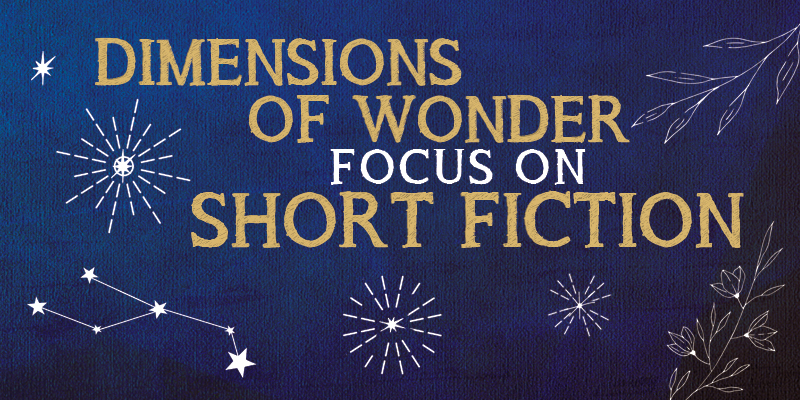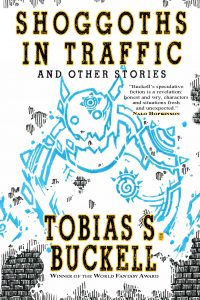Things Short Stories Did and Didn’t Teach Me About Writing and Selling Novels by José Pablo Iriarte

 When I give presentations to aspiring writers – particularly presentations on writing and selling short stories – I’m always careful to emphasize that short stories are no longer the apprenticeship into the novel world that they once were. I know plenty of folks who have sold science fiction and fantasy novels without ever having bothered with shorts.
When I give presentations to aspiring writers – particularly presentations on writing and selling short stories – I’m always careful to emphasize that short stories are no longer the apprenticeship into the novel world that they once were. I know plenty of folks who have sold science fiction and fantasy novels without ever having bothered with shorts.
That said, short fiction did kind of function as a proving and learning ground for me. This coming April, my first novel will come out from Knopf – Benny Ramírez and the Nearly Departed, available for pre-order now! #shamelessplug. But in the decade leading up to that milestone, I sold dozens of stories and made a space for myself in the community of people who love speculative fiction in English. More importantly, I actually did learn a great deal of craft from having to squeeze entire story arcs into the tighter confines of shorter works.
Here are some of the lessons I’ve had to learn or relearn as I’ve transitioned from short story writer to novelist:
Every story begins somewhere, and you probably chose wrong.
Actually, this is one of those places where writing short stories is terrific preparation for writing novels. Stories of any length need engaging beginnings, meaningful arcs, and satisfying conclusions. In the time it takes me to write a single novel, I can comfortably write at least a half dozen short stories, and each forces me to grapple with the decisions that amount to, ‘‘How will I make this worthwhile for the reader?’’ I’ve had so much more practice than I would have if I’d never been a short story writer.
Scrivener is an even more effective timesink when you’re writing novels.
On a panel last weekend, my friend Elizabeth Schechter described Scrivener as ‘‘learning to fly a 747 just to write a book.’’ I, on the other hand, love Scrivener for big projects. I don’t scratch the surface when it comes to all the app’s bells and whistles, but that’s okay. I just focus on the binder, the corkboard, and the different labels and pins that give you a quick visual on what you may be over- or under-doing.
I don’t use it for short stories, though. Since the main appeal for me is organizational, a short story just seems quick enough to write directly in Word.
Your neighbors will be just as unimpressed by/uninterested in your novel as they are by your short fiction publications.
This one hurts. I spent literal decades dreaming of making that first sale. It took another decade to go from first short story sale to book deal. But the folks who aren’t immersed in this life can’t tell what the major milestones are for us. Nominated for a Hugo? Cool, cool, I was employee of the month once at my car dealership.
You’d think this changes when you sell a book, but the thing is, your nonwriter friends don’t know what percentage of aspiring writers never reach that plateau. It’s very likely that their sample size is one: you.
What seems like a reasonable approach to revision for a couple thousand words and no real deadline does. not. scale.
My book is the least revised work of fiction I’ve ever had published.
With short stories, I do sweep after sweep. I use technology to search out junk words. Ditto repeated phrases. I have beta readers. I read the manuscript out loud.
For a five-thousand-word story, that might take a few days. For a novel, it’s a good way to get bogged down and never send it anywhere. And when you’re on a deadline, it’s just not feasible.
With this book, I trusted my beta readers more, trusted my instincts developed over all those years writing short stories, and trusted my editors.
And you know what? It was fine.
Whatever social media you’ve built a platform on is the one where your readers aren’t.
Man, I had Twitter figured out. I had all my friends who’d come up through the submission trenches with me, and we read each other’s stories, cheered each other’s sales, and commiserated over each other’s disappointments.
Unfortunately, though, Twitter isn’t the place to be to reach the folks most likely to buy my books. Apparently those cool kids are on Insta.
So I’ve been trying to get comfortable on the platform with no links except in your bio. Where you can only reshare stuff onto your Story, not your Feed, and only with your phone. Where you need to know the difference between Stories and Feeds and Reels and whatever in the first place….
Being a writer is largely about having the right threads.
Plot threads, that is. I started selling short stories literally as soon as I started having more than one thing going on. A tangible problem the protagonists were trying to solve, plus an emotional problem that was their unarticulated real mission, and maybe even another arc if I was feeling ambitious.
With novels? It’s just more of them. In my forthcoming book I can think of five recurring plot threads involving the protagonist, and pretty much each major character in his family has their own arc with their own goal and conflict.
If you can make ’em feel something in a thousand words, you can absolutely do it in sixty, eighty, or a hundred thousand.
If I have a brand as an author, it’s stories that hit you in the feels. Doing this in a short story or even a flash story – a way bigger challenge, frankly. When you’ve had a chance to take a reader on a journey of tens of thousands of words, they will feel something. So chalk up another one in the column of things where learning to write short fiction served me well.
Are these lessons universal? Heck no. The only universal lesson I’ve learned in writing is that there are no universal lessons. This list just reflects where I am right now – or even just where I think I am right now.
Where I am right now, though, is a place where I’m still experiencing new things as a writer, still learning, and still excited to see what the next year brings. That is a pretty cool place to be, end of story.
 José Pablo Iriarte is a Cuban American writer, high school math teacher, and parent of two. Their fiction has been finalist for the Nebula, Hugo, Locus and Sturgeon Awards, longlisted for the Otherwise Award, and reprinted in various Year’s Best compilations, including Best American Science Fiction and Fantasy 2022. Their debut novel, Benny Ramírez and the Nearly Departed, is slated for publication on April 30, 2024 from Knopf Books for Young Readers. Learn more (but frankly not much more) at <www.labyrinthrat>.com, or follow José on Facebook, Twitter, or Bluesky <@labyrinthrat>, or at Instagram <@josepabloiriarte>.
José Pablo Iriarte is a Cuban American writer, high school math teacher, and parent of two. Their fiction has been finalist for the Nebula, Hugo, Locus and Sturgeon Awards, longlisted for the Otherwise Award, and reprinted in various Year’s Best compilations, including Best American Science Fiction and Fantasy 2022. Their debut novel, Benny Ramírez and the Nearly Departed, is slated for publication on April 30, 2024 from Knopf Books for Young Readers. Learn more (but frankly not much more) at <www.labyrinthrat>.com, or follow José on Facebook, Twitter, or Bluesky <@labyrinthrat>, or at Instagram <@josepabloiriarte>.
FOR MORE FROM OUR FOCUS ON SHORT FICTION ISSUE…
While you are here, please take a moment to support Locus with a one-time or recurring donation. We rely on reader donations to keep the magazine and site going, and would like to keep the site paywall free, but WE NEED YOUR FINANCIAL SUPPORT to continue quality coverage of the science fiction and fantasy field.
©Locus Magazine. Copyrighted material may not be republished without permission of LSFF.








